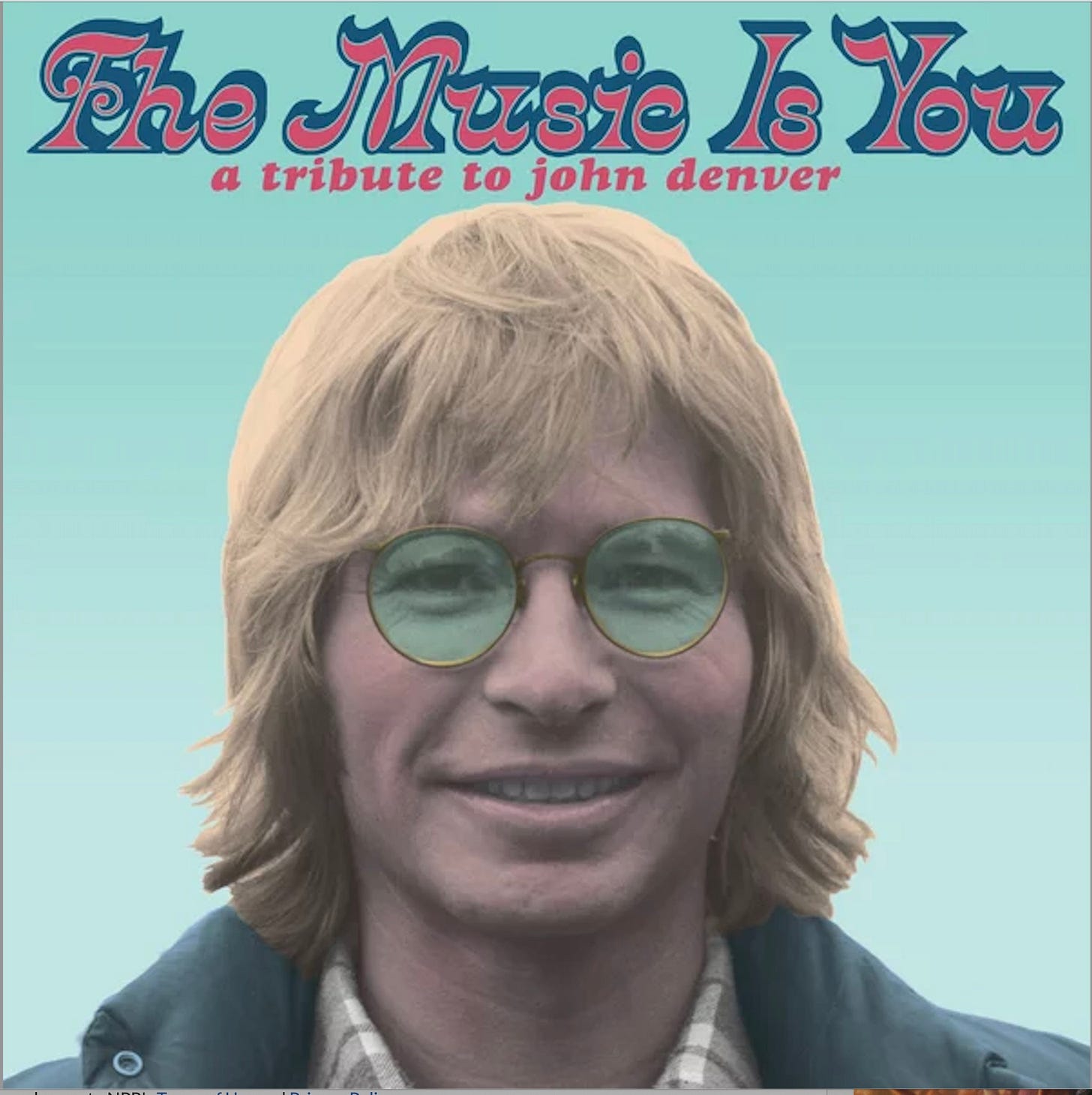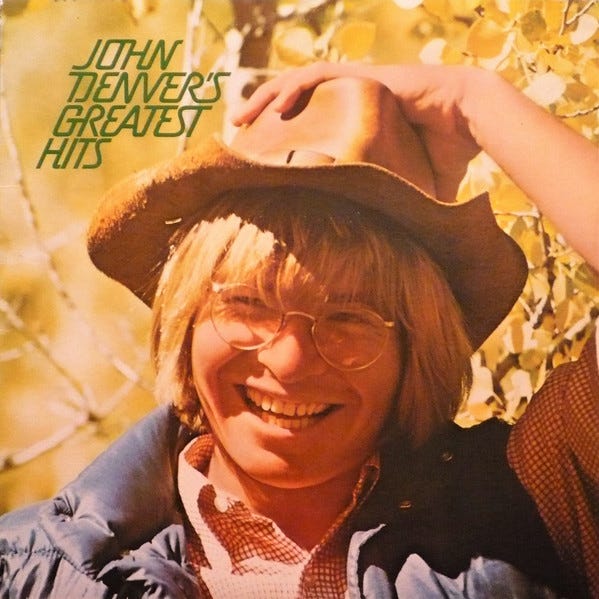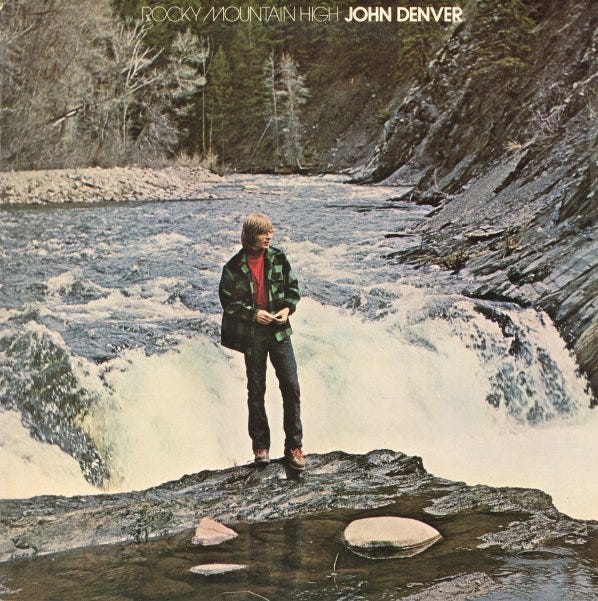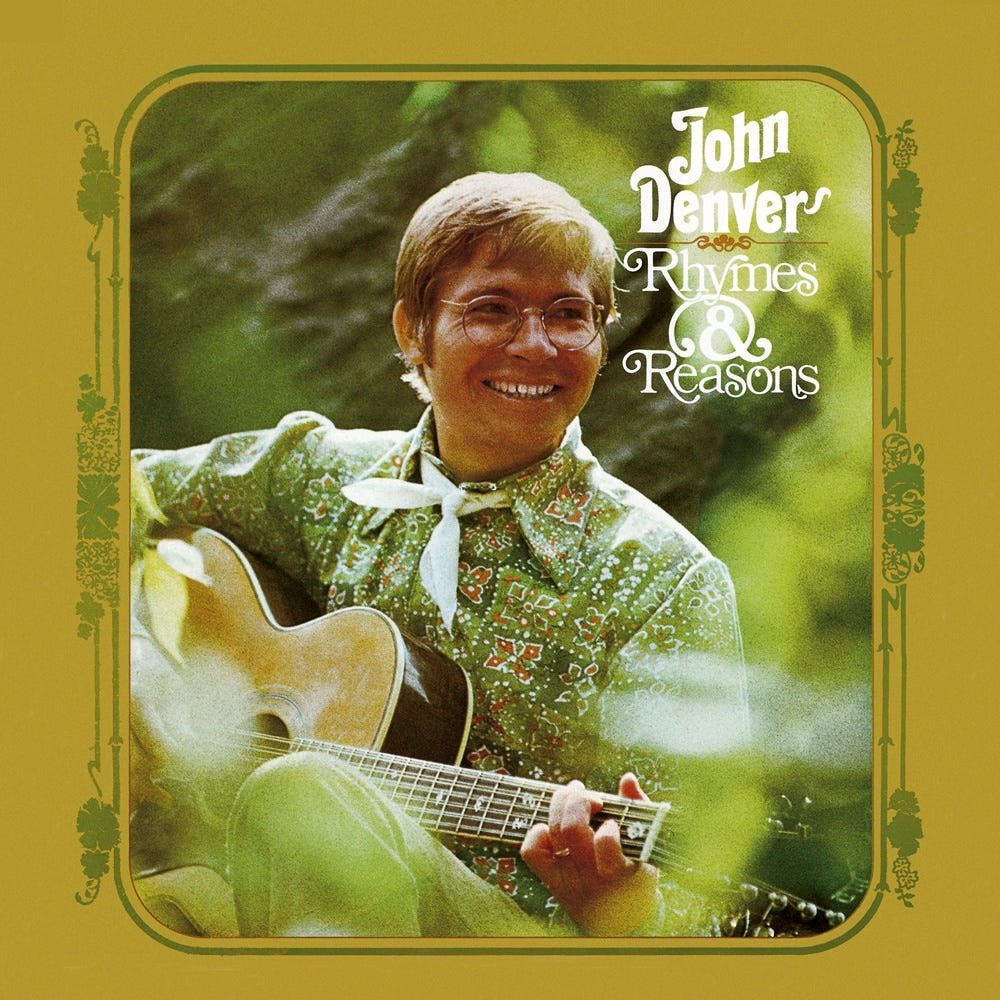I didn’t know why, but several weeks ago, I began listening again to John Denver. I hadn’t listened to him in years. My wife, whose musical tastes are much more varied, subtle, and au courant than mine, looked at me askance.
“Please,” she seemed to plead, “I don’t think I can take yet another resurrection of a mummified 70’s pop star.”
I’ve had to deal with this confident assessment of my musical tastes for forty years, not only from her, but from my son and many of my friends.
Today, I’m taking the gloves off.
At the risk of making a mountain out of a molehill—and billboarding it on the Internet—I’m going to defend myself. I’m gonna hit back.
Hold onto your hats.
Let me admit, right off the bat, that I can be a musical knucklehead.
The first time I went on a road trip with my wife, before we were married, I turned on a Glen Campbell song, and Teri began harmonizing with Glen. I switched off the radio in a huff, turned to her, and said, “Stop singing the wrong notes!”
But cultural knuckleheads have rights too, like 1) the right to like whatever we like; 2) the right to climb the ladder of sophistication; and 3) the right to begin climbing on whatever rung we happen to start on, however low.
Denver was the musical rung I started on. He was an American Romantic for the Me Generation, putting into his happy tunes all his love for the country life, his faith in childlike simplicity, and his awe of the Rocky Mountains.
This blonde, long-haired Nature Boy with the big smile and his shouts of “Far Out, Man!” planted the seeds of Romanticism in my teen heart.
Denver set me on the trail to some of the Rocky Mountain highs of Western culture: from the arabesques of Claude Debussy and the poetry of William Wordsworth to the writings of Henry David Thoreau and the paintings of Eugene Delacroix.
Thank God he was a country boy indeed. Without him, I would be just another knuckle-headed, urban sophisticate.
Self-development is a tricky business in the age of Infobesity, with an ocean of movies, books, TV shows, songs, pictures, video games, and podcasts pouring out of our TVs, laptops, and phones.
TMI is an understatement. Our consumption of cultural product outruns our powers of assimilation. Is it any wonder our minds are addled, unable to concentrate, and paralyzed by indecision?
Some let themselves be carried away by this tsunami of culture—and drown in the dreck.
Others build a dam of good taste around themselves, curating their cultural menu like connoisseurs—and squeeze themselves into the mold of a professor’s reading list.
But a better way, I think, lies in allowing one’s self, in all its quirky individuality, to curate culture with an eye to its own growth.
You shall listen to all sides, Walt Whitman wrote, and filter them from your self. Or as Emily Dickinson put it: The Soul selects her own Society —Then — shuts the Door.
The self does not like being dictated to, either by the tastes of a mob, or the opinions of a snob, which may be why it so often goes into hiding. To become our best self we require both affirmation and transcendence.
The self is our amorphous, mysterious center, a dust bunny that has picked up all sorts of strange things from its airy roll through life. It takes a lot of intuition to know what it needs at any moment.
In 1975, when I moved from New York to Arizona, I needed John Denver. My lost, homesick, gloomy little teenage soul needed Denver’s trust in simplicity, his love of the West, and his full-throated celebration of life.
Not bad for a folk pop star.
The Mohave Desert is 1000 miles from Denver’s beloved Rockies, but it’s still the West. My winter stay in Joshua Tree has stirred up memories of my first move to the desert.
With those memories of fear, insecurity, and homesickness came John’s voice again, and when the ghost of a pop star who has helped you through a tough transition rises and speaks again, it’s bad mojo not to listen.
So much to my wife’s chagrin, I began playing Denver’s songs again and singing along—loudly and off-key—in the shower.
As a teenager my favorite of his songs was “Poems, Prayers, and Promises.” As an older man, it strikes me as more beautiful than ever.
The days they pass so quickly now, nights are seldom long
And time around me whispers when it's cold
Changes somehow frighten me, still I have to smile
It turns me on to think of growing old.
For though my life's been good to me
There's still so much to do
So many things my mind has never known
I'd like to raise a family, I'd like to sail away
And dance across the mountains on the moon.
Addendum: Thanks to Randy and Robin!
I would like to give a shout out to another folk singer I met several days ago in front of the Stater Brothers grocery store in Twenty-Nine Palms.
In the middle of writing this piece, I took a break to do my grocery shopping, and when I got out of my car, I heard someone singing—of all things—John Denver’s “Take Me Home, Country Road!”
I had to stop to listen—John was obviously speaking to me from the grave—and to chat with the musician, Randy, and his wife, Robin.
They were a lovely couple—”38 years together!” Randy exclaimed. Randy reminded me of what John Denver used to shout in his irrepressible bursts of enthusiasm.
“I met John Denver once,” Randy said, “in a grocery store in Aspen, Colorado.”
John was shopping, and when Randy told him how much he loved his music, John cried: “Far Out, Man!”
“That was his signature expression,” Randy said. “Remember?”
I do now. I do indeed.









You write well.
Fly away. Masterpiece.